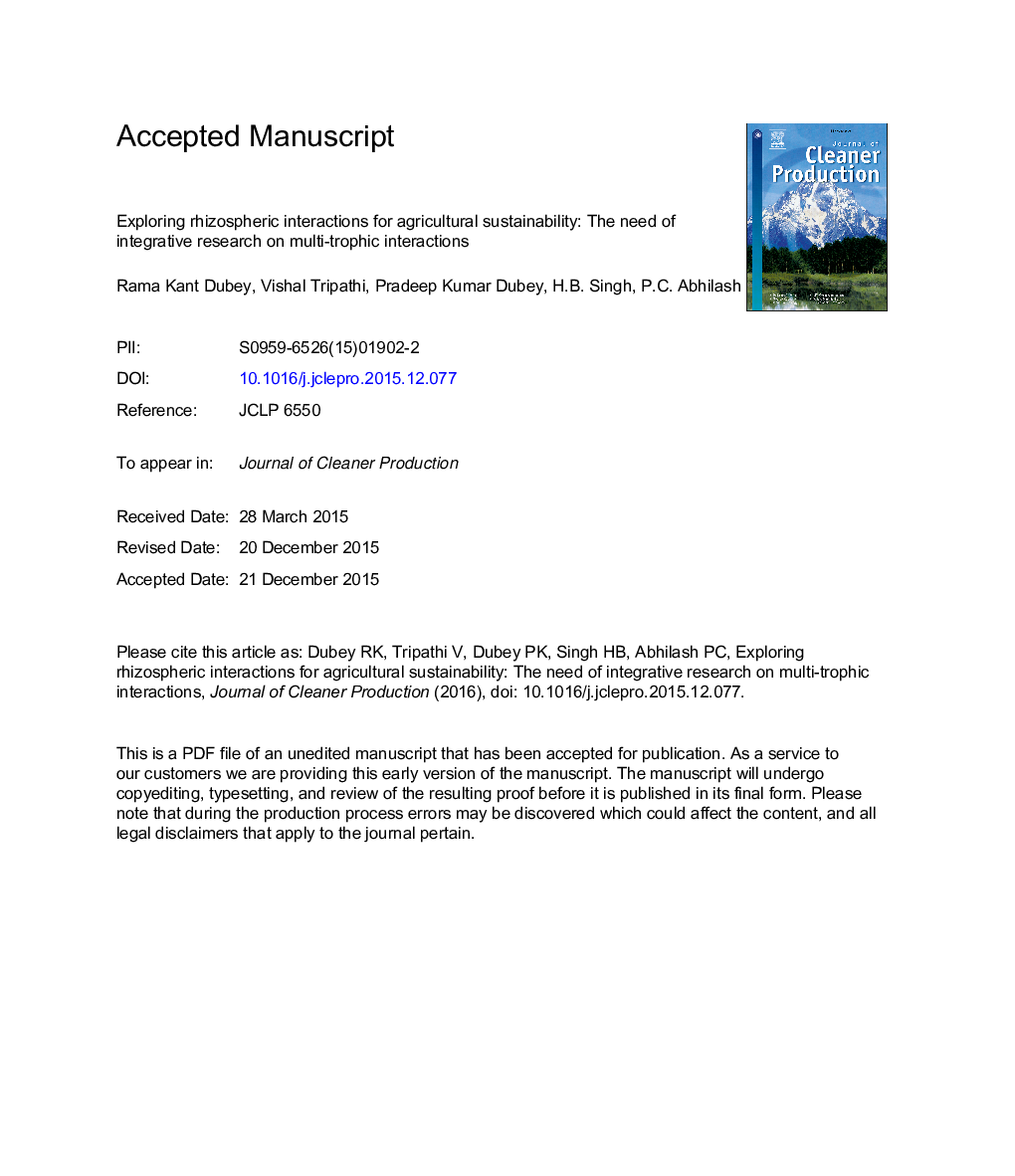| Article ID | Journal | Published Year | Pages | File Type |
|---|---|---|---|---|
| 8102681 | Journal of Cleaner Production | 2016 | 15 Pages |
Abstract
Large scale exploitation of rhizospheric interactions is essential for enhancing the agroecosystems resilience to climate change and also for adopting inventive adaptation strategies for maximizing the food production under such adverse conditions. Successful exploitation of rhizospheric interactions can be used for improving the soil fertility and organic carbon pool while minimizing the trace gases emission from agrosystems. Most importantly, such knowledge can be used to enhance the plant-microbe interactions, conferring diseases resistance to host plants, bioremediation and restoration of marginal and degraded lands. However, recent studies proved that changing climatic conditions can alter the rhizosphere biology by modifying the root exudation rate, resource availability and biogeochemical cycling. Therefore, strategic and applied researches are essential to explore the rhizosphere biology under changing climatic conditions and harnessing all beneficial interactions as a low-input biotechnology for sustainable agriculture, ecosystem restoration and environmental sustainability.
Related Topics
Physical Sciences and Engineering
Energy
Renewable Energy, Sustainability and the Environment
Authors
Rama Kant Dubey, Vishal Tripathi, Pradeep Kumar Dubey, H.B. Singh, P.C. Abhilash,
